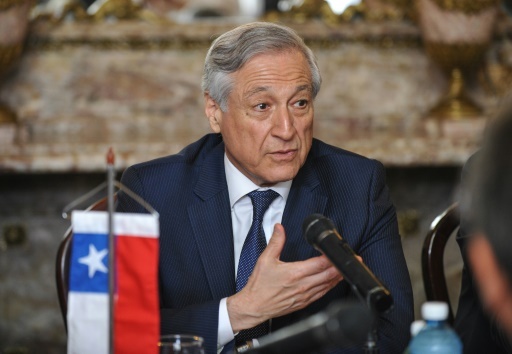-
Tips for becoming a good boxer - November 6, 2020
-
7 expert tips for making your hens night a memorable one - November 6, 2020
-
5 reasons to host your Christmas party on a cruise boat - November 6, 2020
-
What to do when you’re charged with a crime - November 6, 2020
-
Should you get one or multiple dogs? Here’s all you need to know - November 3, 2020
-
A Guide: How to Build Your Very Own Magic Mirror - February 14, 2019
-
Our Top Inspirational Baseball Stars - November 24, 2018
-
Five Tech Tools That Will Help You Turn Your Blog into a Business - November 24, 2018
-
How to Indulge on Vacation without Expanding Your Waist - November 9, 2018
-
5 Strategies for Businesses to Appeal to Today’s Increasingly Mobile-Crazed Customers - November 9, 2018
World Court will continue to hear Bolivia-Chile dispute over sea access
Landlocked Bolivia lost access to the Pacific following an 1880s war, but it has remained a thorn in the side of relations with its more affluent Andean neighbour ever since.
Advertisement
On Thursday, the ICJ dismissed a Chilean claim that the court had no jurisdiction in the issue, ensuring that the case will be heard.
At The Hague, the Spanish jurist Antonio Remiro Brotons, member of Bolivia’s team of worldwide lawyers, said that the “definitive solution will be found by the parts that are negotiating with political will, good faith and constructive sense”. Since the issue was not already decided by prior arrangement by the parties or by treaty in force at the time of the Pact of Bogotá, the ICJ ruled that it ultimately can hear the case.
Bolivia’s court claim is based on a series of bilateral talks held between the two nations in the 1970s, when the subject of access to the Pacific was discussed.
Bolivia, however, successfully argued that Chile’s obligation to negotiate the sea access – deriving from “agreements, diplomatic practice and declarations” – exists independently of the 1904 treaty.
Morales said in a national address that the court’s decision was received with “humility” and “certainty” that justice would prevail. It only means that the case will continue.
Bolivians gathered outside the court cheered the finding, and a beaming President Evo Morales said he was “enormously satisfied” with the result.
However, Chile’s President Michelle Bachelet criticized the decision, saying it “does not affect our territorial integrity”.
Although the case could last several years, ICJ rulings are final and binding.
“We maintain the conviction that Bolivia’s case is baseless”, she said.
Advertisement
Bolivia, which still retains a navy and wants a corridor to the sea to boost exports of natural gas and minerals, now has low-priced access to Chilean ports.





























